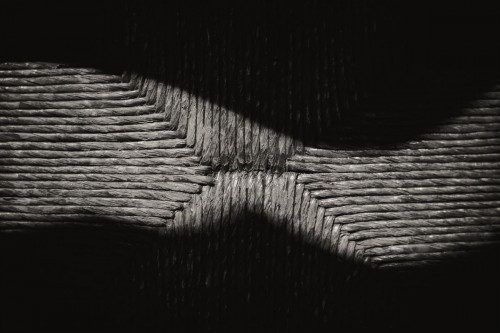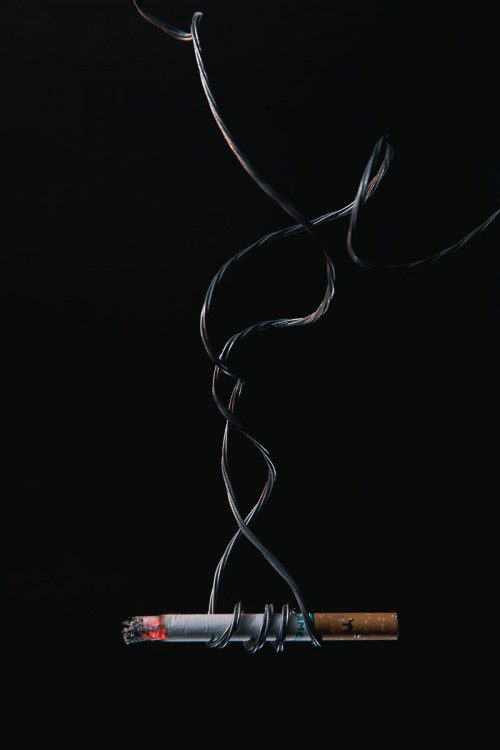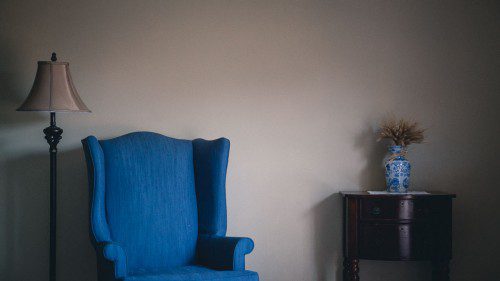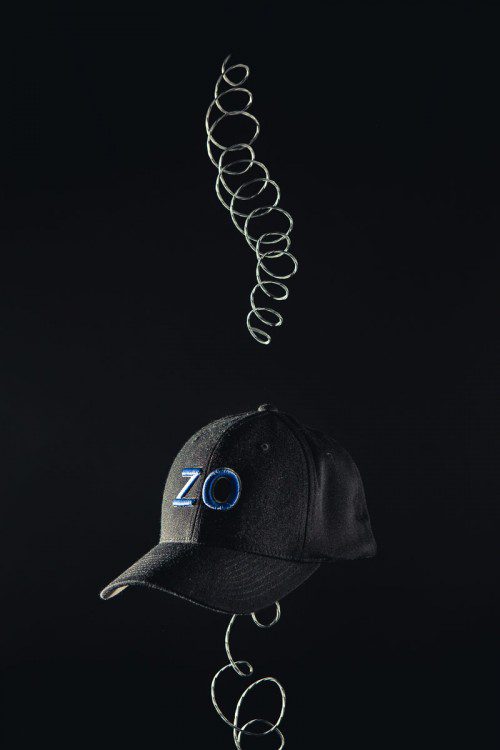Every single one of us holds assumptions. They are part of being human. We assume there won’t be too much traffic on the way home from work, or that there will be way too much. We assume it will be hard to find a partner, or that it will be exceedingly easy. We assume that we’ll be able to pull the details out of the sky, or we assume that the camera doesn’t have enough dynamic range.
Assumptions are cognitive shortcuts based on patterns.
Human beings are pattern-matchers. We find patterns everywhere we can, and then use them to take cognitive shortcuts. Broken windows don’t mean the neighborhood is rough. But see enough broken windows in rough neighborhoods and soon when you see one, your brain will be taking the cognitive shortcut and concluding that the neighborhood must be rough.
Assumptions aren’t necessarily a negative thing, however. For example, my dog, Mikey, always greets people who come to the door. If I am working, and Mikey eagerly jumps up and runs to the door, I’m not going to spend energy considering the many things his haste could mean. Instead, I’m going to follow the pattern and take the cognitive shortcut to conclude that someone must be at the door and I may need to go welcome them.

Photo by Jacob Bøtter
A critical assumption is different in that the shortcut it provides might sidestep a potentially important, or perhaps the only, path to some desired outcome.
For example, let's say I’m loading all my camera gear in the car and I’m going out to photograph the local squirrel infestation. I’ve seen them running around for weeks, and I know all their favorite spots. When I get there, however, I find that the local pest control has ‘relocated’ the problem. Now I have all my gear in the car and nothing I have intended to photograph. The outcome I desired was artsy images of adorable squirrels. The critical assumption was that I have all the time in the world to create those squirly images, and that the infestation wasn’t a problem someone else was attempting to solve.
If I had identified that critical assumption, I would have taken different actions and I would have quite the conversation starter hanging, perfectly arranged, on the wall of my office.
Want to observe the critical assumptions in your own life? Wait for the next time you get caught in the bathroom with an empty roll of toilet paper. If you never assumed there’d be toilet paper available, you’d probably never be caught without it.
That example starts to go to an extreme though. Critical assumptions lend a hand to the everyday uncertainties of life. They’re not altogether avoidable. But, if you can identify them and dispel them, or at least prevent them from being equated to “Truth”, you’ll be opening up a lot of pathways to whatever it is you’re aiming for.
So although critical assumptions come in every size and just about every degree of consequence, and are usually invisible until it’s too late, I’d like to talk about some of the high-level critical assumptions that a lot of us might relate to. Not the ones being formed in your day to day, but the ones forming your day to day. The larger ones that take hold almost like they are personal values. Not the ones that keep you from getting to work on time, the ones that keep you from quitting your job.
Critical Assumption #1: I’ll be ready when I get there.

For many people, once they complete school then they’ll be ready. Then they’ll do the things they want to do. Then they’ll create a website for their photography. For other people, it’s when they have kids, then they’ll have inspiration. Or when the kids have grown up, then they’ll have time. When they get some special piece of gear, or when they have learned the language well enough, then they’ll try.
The ‘what’ here really doesn’t matter. A picture you want to create. A city you want to photograph. A lighting technique you want to study. A pie you want to bake. The critical assumption in all these cases is that there is some quality of your circumstances or possessions that must be just right. There’s some quality of you that must be just right, and that can’t happen right now.
This is a critical assumption that forces you to wait forever for everything to fall into place. A big huge refund check that lets you sidestep all the DIY shenanigans you assume you’re not cut out for. A week off from work and a free place to stay at your friend’s beach house. Sometimes these things do happen, and we take full advantage. But most of the time, they don’t and the stars don’t quite align so that we feel the moment has sufficiently arrived.
You get a week off, but no one wants to go camping with you, so you wait till next time. You got the beach house, but you forgot your memory cards. The refund check came, but you forgot about the car insurance premium, and you’re really not a great driver.
If we find ourselves saying “I’m not ready, I’ll be ready when…”, there’s a good chance we’re really just saying “I don’t want to have to do anything right now”. The circumstances will never be perfect. If we let go of this critical assumption, we might find all kinds of ways we can get started right now.
Ambition and dreams have a way of making reality very interesting.
Critical Assumption#2: I’m not the kind of person who…

Bull honkey. No one is the kind of person who anything.
The phrase “actions speak louder than words” echoes all over the place. It just feels intuitively right. We know personally how easy it is to speak, but how hard it is to do.
So consider this, much of our idea of who we are exists solely in the language we use about ourselves in our head. I’m creative. I’m sensitive. I’m self-aware. I’m not jealous. I’m a leader. I’m ambitious.
Those words come from my inner monologue. They, in part, make up my idea of “who I am”. But if my actions speak louder than words–and I’m willing to look at them and consider them a better gauge of “who I am”–then I would agree that I’m creative and I’m sensitive. But how frequently I eat a burrito in bed would suggest that maybe I’m not so self-aware. And how easily I can feel and act defensive would cast doubt on whether I’m in fact not a jealous person.
The truth is, no language could possibly summarize who we are succinctly. The best it could do is say “Sometimes William is creative. Sometimes William is sensitive. Sometimes William is ambitious.” We are made up of constantly shifting ideas, feelings, experiences and interpretations of those experiences.
It can be scary to try new things. Perhaps you showed up late to the HDR phenomenon and you really want to make some crazy looking HDR’d out images. But “you’re not the kind of person” who goes jumping on the bandwagon late.
That’s stupid.
The critical assumption here is that you are a static being. You’re not, none of us are really. You should follow your urge to seriously overdo some HDR. Go ahead and try out being “that kind of person”. You’ll be another kind of person the next day. And yet another person the day after that. And soon you’ll realize there isn’t a “kind of person” in any way that is likely to matter to what you want to do.
Don’t assume you know what kind of person you are. Observe what kind of person you are, then accept that person and get to know them.
Critical Assumption #3: I can’t do anything until I get organized.

You’re thinking too fast.
You’re making the critical assumption that all tasks in any given project are of equal importance. You’re assuming it’s complicated. “Getting organized” is probably an avoidance strategy that keeps you from having to do anything right now.
You have to schedule with your model. You have to rent the courtyard space at the mansion. You have to contact the makeup artist. You need to have the designer ship you the dress. So on and so on and so on.
In your mind, all those things might be one big task, the lapse of any of which could destroy the results of your project. But if you slow down and realize that this project is a collection of steps, each with varying levels of importance, suddenly ‘getting organized’ suddenly looks more like just jotting down a quick list.
Sometimes we do need to get organized, sure. And that might become clear as we start making a list. But before that, if we’re holding this critical assumption, there’s a good chance we’re overcomplicating it.
It’s easy to make the critical assumption that simple things are complicated before we put our hands on them. It keeps us nicely padded from the assumption that we might not be good enough.
Critical Assumption #4: I’m not good enough.

This, for some, could be considered the mother of all critical assumptions. If you don’t think something is possible, you probably won’t try.
This one is devastating, and sometimes the hardest to spot because it comes in so many well camouflaged colors. You want to be a food photographer, but you “know” you’re not good enough. So you don’t bring your camera to the restaurant. You don’t walk up to the manager and ask if you can shoot some recently plated food. You don’t offer the new Indian restaurant down the street new photos for their menu, even though you’re friendly with the owner and happen to know he isn’t happy with their current photos.
When you assume you’re not good enough, you take skills that people have acquired and elevate them to almost metaphysical heights. Of course that photographer created the award winning photograph. You could never do that. This assumption implies to yourself that people are born with their jaw dropping abilities.
But, of course, just driving your car around without crashing into everything, you know that’s not true.
Remind yourself that you’re human–just like the best and the worst us. If you want to be a food photographer you have the human capacity to do it. The circumstances you encourage and the way you take advantage of them are a different thing. But if you want the skill, you can acquire it.
Critical Assumption #5: No one else likes this kind of thing.

We are very different from one another. This is true. From moment to moment we change and evolve. Sometimes we move forward, sometimes we move back. We’re quite unique in the advancement of our thinking throughout our lifetime, and where we are in that process as far as others are concerned.
But in some very meaningful ways, we are very much the same. Many of the phases, which come at perfectly unique times for us are essentially the same phases that happen for others. It’s the reason why I can write something like this with some reasonable confidence that some of you are going to relate.
Sometimes we can feel silly investing ourselves in something no one around us seems to have any interest in. Enjoying country music while all your friends are strict hipsters. Shooting locations others have already shot into oblivion. Shooting abstract. Or trying something new like a self-published, poetic, photo essay.
Human beings spend quite a bit of energy trying to not feel silly.
The critical assumption at the wheel is that we are strange or weird. No one else could understand, no one else can relate. This project of yours, this dream, doesn’t have anywhere to belong. You like the idea, so that must mean no one else will.
But, have you met the internet? I think there’s a rule about this one in there somewhere.
If we exaggerate our uniqueness in our mind, we’ll miss many opportunities to relate. And, if it’s held too tightly, it could mean stifled or extinguished creativity, since it would seem public ridicule is the only thing out there for what you’ve made.
Critical Assumption #6: I don’t really have the time.

So I’ll say it again, people are remarkably good at making time for the things that matter to them.
This is a critical assumption that’s probably almost never true, but is called upon constantly.
I’m betting most of us don’t audit our time. We don’t really know how much time we actually have. The routines in our lives shift, sometimes very slowly, sometimes rapidly. But they are always shifting. It has a way of obscuring our available time.
For example, if you work a nine to five, you might get home from work at five thirty, and eat dinner at six thirty while watching your favorite show.
Before you eat dinner, you might feel like you’re winding down from work, and so wait to get started processing those double exposure experiments you were doing. But after you eat dinner, you might feel lethargic from the large portions and general motionlessness of the TV watching. So you still don’t get to the double exposures.
Of course, none of this is exactly conscious. It’s all cleverly disguised in the shifting routines. The unwinding from work, leading into the big dinner in front of a tv, leading into feeling unenergetic, leading the blame onto the long day’s work, and so appearing to legitimize the “not enough time” assumption.
When we make this assumption, we assume that the way we use our time is complete in our memory. And more importantly, we assume that the way we use our time accurately reflects how much of it we really have to spend.
On both accounts, we usually assume badly. I use a tool called RescueTime to get an idea of how I’m actually using my time. It’s okay to watch TV, or just listen to music, or read endless articles on LightStalking, or just lay around in the back yard getting a tan. But I have to understand that when I do, I’m choosing to do that instead of something else–perhaps something that matters much more to me.
Some people really don’t have any extra time. But they’re few and far between. Taking this critical assumption apart and disproving it is likely to open up a ton of opportunities.
Critical Assumption #7: No one would pay for this.

No one like you would pay for this. But the people who will hire you for your skills don’t have to be like you. In fact, if they were like you, they probably wouldn’t be hiring you. They’d probably be doing it themselves.
Some people create in private, and they dream of being able to support themselves with what they create. But, a little voice inside them says “who would ever pay for photos of hyper-realistic shoebox dioramas?”
The critical assumption here is that that voice is right and knows what it’s talking about. But it probably doesn’t.
Lets say there was an elderly person in your neighborhood who walked to the grocery store twice a week, and always had to brave an ever widening highway to do so. Of course, you have a pretty quiet neighborhood and people tend to keep to themselves. Although you wish the community could become a little more tightly knit, they don’t really seem to need each other much. Then, one day while you were working in the garden, you strike up a conversation with your elderly neighbor and mention that you’ve been thinking of how you could invest in the community and bring every get a little closer.
There’s a good chance your elderly neighbor will take the opportunity to ask you for aide to the grocery store. And, you might just oblige. You might end up with a wonderful relationship with this neighbor, and you might inspire other charitable activity throughout the community. If you didn’t think there was some good you could do in your community, you wouldn’t have spoken up and you wouldn’t have been able to help your neighbor.
No it’s not exactly the same, but you probably don’t have a great idea of what people need or want before you start telling them what you can do. You’re not very likely to offer your services if you believe no one is looking for them.
This critical assumption keeps us hidden from opportunities. Perhaps there’s a wealthy family in the next town over who’d pay handsomely for diorama recreation photos of their 13 year old daughter’s bedroom. Bieber posters and all.
This assumption will keep you from saying “I can do this, if anyone’s interested”. Ditch that assumption early and there will be a lot more potential opportunities in your path. Though probably not the ones you expect.
Critical Assumption #8: I need to take a class.

Education is a barrier for many people, ironically. They view education as the only thorough way to really learn about something.
For many years I held this critical assumption. Not having received much in the way of formal education after about tenth grade, I hungrily ate away at nearly anything I could find online and in books. Though in spite of demonstrable skill and understanding in art and photography, customer service and marketing, I was still holding the assumption that I was missing something really important, and if I’d gone to school I’d know what it was.
School is an infrastructure for learning and mastery. It is not learning and mastery itself. The student still has to do the learning, and the benefit is proportional to their personal investment.
But school is not the only infrastructure for learning. If you didn’t go to school, or didn’t go for photography, you don’t necessarily have to. The point is not to go to school. The point is to acquire skills and knowledge and confidence.
This critical assumption relegates those benefits only to academia, even though they are accomplished by the student, through the student’s investment and are available to everyone, for free, all the time.
By assuming that formal education is the only effective infrastructure for acquiring the abilities you want, you ignore the infrastructure you could start building for yourself in the next few clicks.
Critical Assumption #9: I know how to do that.

Sometimes we can get a little hands on experience with something, and get a lot of hands-off experience, and then walk away feeling rather well prepared. Sometimes just the hands-off experience is sufficient to produce that feeling.
But knowing how something is done isn’t quite the same as knowing how to do it. Can you do it in a hail storm when one of your strobes just took a dump?
This critical assumption can steal the drive to create proof of your improvements. It can keep you from trying, and trying again. And your confidence probably suffers for it.
Have you ever chosen to neglect an opportunity in photography because you “already knew how to do that” and it didn’t seem challenging enough, or you’ve already done that? There’s a good chance it’s masking insecurity about how well you’ve grasped some concept or another. You might have learned how something is done, but you’re hesitant to prove you know how to do it.
Lets say first you assumed that you “needed to take a class”. It took a long time, but you finally did. Energized by the positive decision to take the class, you did lots of reading, watched tons of videos and thanks to the class, finally got a little hands on experience with Lomography.
Now you reasonably assume you “know how to do that”. But you haven’t really been out there yet. You haven’t pushed out to the edges of your new skills and creative outlets, feeling around in the empty space beyond. You know how it’s done, but you’ll need to prove you know how to do it.
If you have an ambition, or an idea, but resist because it’s not challenging, or you’ve done it before–look closely for this critical assumption.
Critical Assumption #10: I don’t know how to do that.

I think this might be the most popular critical assumption of them all. It’s the one a younger version of myself clung to consistently.
I recently started making music for the first time in my life. It’s not groundbreaking, or impressive, but it’s honest, and something that I have wanted to do for a very long time. My path to finally trying took advantage of nearly every single one of these critical assumptions.
I “would be ready when I got there”–I sat and twiddled my thumbs, hoping the circumstances would one day be perfect. I have a lot of musician friends, they made music, but I “wasn’t the kind of person who made music”. Learning a musical instrument piqued my interest, but it wouldn’t do me a lick of good until I “got organized”. Of course, I’m also much older than most people are when they try something like music for the first time and I knew “I wasn’t good enough” to keep up.
It was, in part, the revelation of critical assumptions in my life that finally led to some actual music.
At the time, the critical assumption I was holding was this one “I don’t know how to do that”. And when I discussed the matter with a close artist friend, I was given this encouragement:
“You’ve been listening to music your whole life. Just make something.”
We might know we don’t know how to do something. Maybe you know you don’t know how to do studio photography. Sure, the technical skill needs to be studied and mastered. But, you’ve been looking at photographs and images your whole life. Every, single, day. It’s only a matter of teaching your head and your hands to carry out the task.
The problem is, this assumption neglects the fact that learning how to do something often does not preclude actually doing it. But, the ‘shortcut’ it provides says, “since you don’t know how to do it, don’t try until you do.”
Catch 22. Most of us learn best by doing.
A Final Word
Critical assumptions are a part of life. They’re not evil. They’re linchpins and often only obvious in hindsight.
This list wasn’t even remotely exhaustive. These are the critical assumptions that I have made, and I’ve observed in other people. Had I learned about the concept many years earlier, I might have had an opportunity to sidestep some of the frustrations I’ve experienced in life.
You might be making some of the same critical assumptions I was making. You might be making your own special brand. Whatever your goals might be, know that somewhere in there, you’re assuming something. Find out what you’re assuming, and imagine what might be different if you assumed the opposite.
There are endless opportunities behind unchallenged assumptions.
I would love to hear how critical assumptions have affected you, and your thoughts on the way they affect artists and photographers in general. I’m always available on Twitter!






5 Comments
Wow, thank you for the enlightening article. How true it is that we allow ourselves to be trapped into these preconceived scenarios and miss the opportunity to do something that may truly amaze ourselves.
Great article. Made a light bulb go off in my head, lol, as I have been guilty of almost every one of these assumptions., too. Out with the old, in with the new! Thanks for opening my eyes to a new way of viewing myself and my talents and skills.
Love this. Really motivational. Definitely need to get out there and take even more photos than I do!
Guilty of #7. I shoot sometimes every day things, to some dark stuff as well. My portraits tend to be edgy, and doing so attract a certain audience.
I’ve been told that customers like what I produce, so why not believe I could profit from their interest?
So, I will continue on. Thank you for the encouragement.
So true. I found myself smiling many times as I read this because I could recognize so many of my own assumptions (and excuses). Thank you for writing such an honest article.